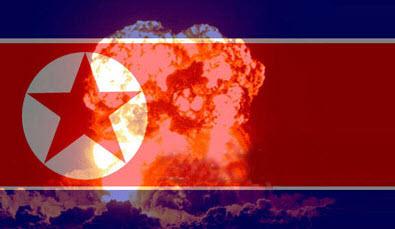
Forbes comments: "Give the world's two superpowers credit for effort but don't expect a whole lot more. Since the presidents of China and the United States met for their first time in April, they've spoken the language of cooperation to hobble North Korea's nuclear and ballistic missile programs spearheaded by the enigmatic leader Kim Jong-un. To appease China, which doesn't want the Kim regime to collapse and leave a power vacuum on its border, a senior U.S. admiral had saidthe United States wants to bring North Korea not to its 'knees,' just its 'senses.' China reportedly planned to cut the flow of petroleum to North Korea in a sanction-like gesture likely to win favor with Washington. But Trump shows signs of wanting more out of his cooperation with China, especially now as everyone's asking whether 22-year-old American student Otto Warmbier was intentionally hurt in North Korea before his release -- and death a week later. North Korea had detained him for a year on suspicion of stealing a propaganda poster. "(Trump) commented personally…that he continues to be very troubled by what happened to Otto Warmbier and would like to see China do more," White House Press Secretary Sean Spicer told a briefing Friday."
The Associated Press reports: "China has pre-emptively hit back at the United States for speaking "irresponsibly" ahead of an expected Trump administration move to name China among the world's worst human trafficking offenders. Foreign ministry spokesman Lu Kang said Tuesday that China strongly opposes the U.S. using its domestic laws to attack another country's record, and maintained that the results of China's anti-human trafficking efforts are "obvious for everyone to see." The U.S. State Department was expected to unveil later Tuesday a 2017 human trafficking report that downgrades China to the lowest "Tier 3" category, which includes North Korea, Zimbabwe and Syria. The report is the first major U.S. reprimand of China's human rights record under the Trump administration, which has generally played down the promotion of rights in its foreign policy, including with China. Tier 3 countries can be penalized with sanctions or barred from participating in U.S. cultural exchange programs, although the U.S. president has the authority to waive sanctions."
The Washington Post reports: "The United States on Tuesday joined calls for the immediate release of Nobel laureate Liu Xiaobo, urging China to set him free so he may receive the medical treatment of his choosing for what is believed to be late-stage liver cancer.Some worry it's already too late. In a tearful video message, his wife, Liu Xia, suggested that treatment was either no longer possible, or simply not on offer. 'Cannot perform surgery, cannot perform radiotherapy, cannot perform chemotherapy,' she said in the tearful, 10-second clip, which was posted by a friend. She did not elaborate. News of Liu's illness surprised close associates and distant supporters alike, raising questions about whether China withheld information about his health or denied him timely access to care. Hu Jia, a fellow activist, said that the family wanted Liu to be treated in Beijing, where hospitals are better, or abroad, but that Chinese authorities had other plans, possibly fearing unrest ahead of big political meetings scheduled for the fall."
- 2017-06-26 New U.S. ambassador to China says North Korea a top priority
- 2017-06-25 There's No End in Sight for China's Rise Up the GDP Rankings
- 2017-06-23 Xi Jinping Is Set for a Big Gamble With China’s Carbon Trading Market
- 2017-06-22 Exclusive: South Korea president calls on China's Xi to do more on North Korea nuclear program
- 2017-06-21 China stocks hit 18-month high on MSCI inclusion
- 2017-06-20 China tour agency says won’t take more US tourists to NKorea
- 2017-06-19 China, Russia held navy drill on Sunday: Xinhua
- 2017-06-18 China launches crackdown on academic fraud
- 2017-06-16 As Trump Bets on China’s Help on North Korea, Aides Ask: Is It Worth It?
- 2017-06-15 ‘China Panic’: Beijing Envoy Accuses Critics of Fearmongering
- ABC News China hits back at US on human trafficking downgrade
- The Washington Post U.S. urges China to allow jailed Nobel laureate to get cancer treatment abroad, but is it too late?
- The New York Times Tycoon's Claims Reverberate in China Despite Censorship and Thin Evidence
- The Wall Street Journal China's All-Seeing Surveillance State Is Reading Its Citizens' Faces
- The New York Times China's Premier, Li Keqiang, Praises Free Trade, in Contrast to Trump
- Reuters China's new environment minister urges 'protracted war' on pollution
- The Wall Street Journal Chinese Premier Touts 'Unimaginable Job Growth'
- The Financial Times China's shadow finance time-bomb could trigger crisis
- Bloomberg China's Growth Looks Like It Has Already Peaked for 2017
- The Financial Times China's premier rules out 'massive stimulus'
- Newsweek China and India Border Dispute Raises Fears of New Asian War
- Bloomberg Li Says China to Meet Growth Goals, Vows Free Trade Support
- Reuters Brazil, China open $20 billion fund for infrastructure, tech projects
- Forbes China And The U.S. Are Cooling Their Cooperation To Curb North Korea
- Quartz I'm sad for my friend Liu Xiaobo, and for a China that can't cherish its finest
- The Diplomat 5 Challenges in China's Campaign for International Influence
- The Hill Rare-earth rancor: Feds must stop Chinese purchase of US mine
- Fortune The Accelerating Disruption of China's Economy
- TIME Hong Kong 20th Anniversary: Chris Patten, the Last Colonial Governor, Recalls the City's Handover
- Forbes Four Reasons Why China's Industries Will Dominate The World By 2030
